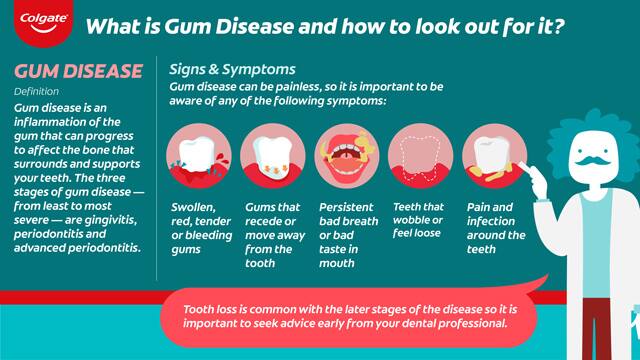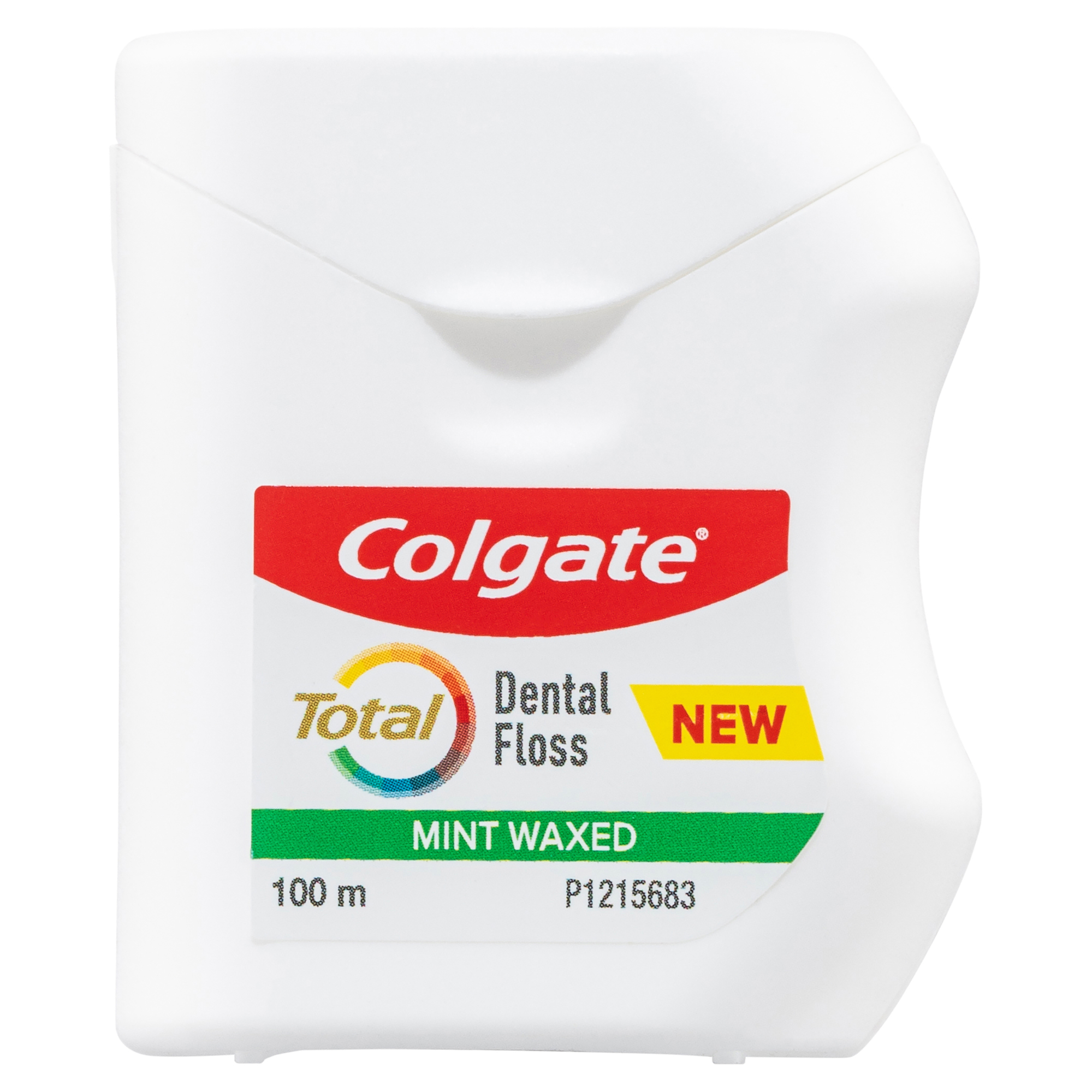-
-

BRUSHING & FLOSSING
How to BrushWhat Is the Right Way to Brush?
Proper brushing takes at least two minutes — that's right, 120 seconds!...

BRUSHING & FLOSSING
How To FlossWhat is the Right Way to Floss?
Proper flossing removes plaque and food particles in places where a toothbrush cannot easily reach... -
Science & Innovation
- Home
- Oral Health
- What Is Gingivitis? Signs And Symptoms


What is gingivitis?
Gingivitis is an inflammation of the gums. It is the initial stage of gum disease and the easiest to treat. The direct cause of gingivitis is plaque: the soft, sticky, colourless film of bacteria that forms constantly on the teeth and gums.
If the plaque is not removed by daily brushing and flossing, it produces toxins (poisons) that can irritate the gum tissue, causing gingivitis. At this early stage of gum disease, damage can be reversed, since the bone and connective tissue that hold the teeth in place are not yet affected. However, untreated gingivitis can become periodontitis and cause permanent damage to your teeth and jaw.
How can I prevent gingivitis?
Good oral hygiene is essential. Professional cleaning is also extremely important because once plaque has hardened and built up, or become tartar, only a dentist or dental hygienist can remove it.
You can help stop gingivitis before it develops by:
- Proper brushing and flossing to remove plaque and debris and control tartar build-up
- Eating the right food to ensure proper nutrition for your bones and teeth
- Avoiding cigarettes and other forms of tobacco
- Scheduling regular check-ups with your dentist.

This article is intended to promote understanding of and knowledge about general oral health topics. It is not intended to be a substitute for professional advice, diagnosis or treatment. Always seek the advice of your dentist or other qualified healthcare provider with any questions you may have regarding a medical condition or treatment.
Related Products

Helping dental professionals
More professionals across the world trust Colgate. Find resources, products, and information to give your patients a healthier future











